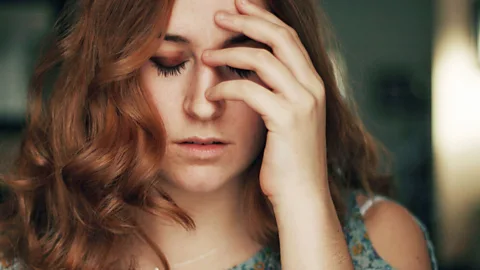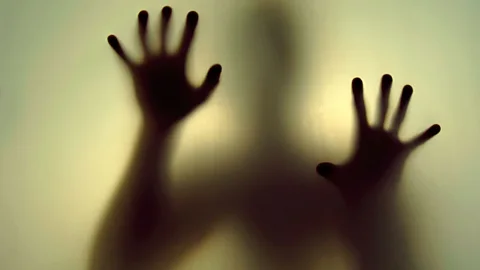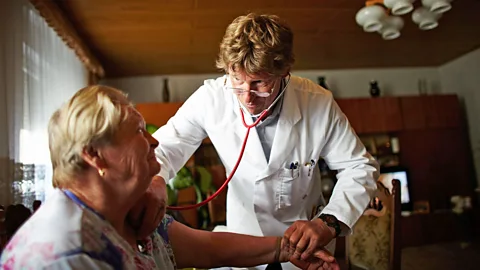How a doctor’s words can make you ill

A good bedside manner can help heal the body, but if doctors don’t choose their words carefully, they can also make you unwell.
Have you ever visited a doctor, and come away feeling they weren’t much help? Listen to the following audio clip, and you might start to understand why.
During a role-play for BBC World Service’s Discovery programme, presenter Geoff Watts talks to Dr Mark Porter about problems with his knees. Throughout the interview, Porter’s words subtly create a negative impression for the patient. He says he has some “bad news” and the knees are “worn out” due to osteoarthritis; the drugs “help a bit” – but they may damage the lining of the stomach, he says.
As Watts goes on to discover, those subtle cues might actually exacerbate the physical symptoms. “The problem with the way I sold it, was that it validated your concerns that your knee’s falling apart, it’s crumbling, you’re doomed,” says Porter. “And the side effects I mentioned – I put them out of all proportion.”
Experiments have shown that simply warning people about certain side-effects can actually make them more likely to experience the nausea, fatigue, headaches or diarrhoea – even when they have been assigned innocuous pills rather than an active drug.
Healing words
Medicine has long known about the placebo effect – the healing power of good expectations. But the nocebo effect, as its evil twin is known, may be more powerful. “It’s easier to do harm than good,” explains Watts. “And this is worrisome, because nocebo’s negative influence can be found lurking in almost every aspect of medical life and beyond.”

In extreme circumstances it could even be deadly, as we recently explored in our article “The contagious thought that could kill you”.
The good news is that, through the same power of the mind-body connection, a good bedside manner may do wonders for treatment. One study found that depressed patients given placebo pills by an empathetic doctor ended up with better results than those taking an active drug from a psychiatrist who seemed less concerned about their welfare. Some scientists have even hypothesised that doctors could try to make use of the placebo effect to reduce the dose given to patients – by using the power of their mind to make up the difference. “Healing is a real phenomenon. We all have the ability to self-heal in many conditions and that can be activated by our interactions with other people,” says Paul Dieppe at Exeter Medical School.

Simple measures might include taking an empathetic and caring attitude during diagnosis, that considers the patient’s concerns and fears, however unlikely, says Porter. And when prescribing treatments, the doctor should emphasise the positive effects of the medicine, while framing the negative side-effects so they seem less frightening, and being careful not to over-emphasise their risks.
“Every word counts, every glance counts,” says Ted Kaptchuk of Harvard University. And it’s an opportunity that shouldn’t be missed. “I don’t think that’s going to be a burden for physicians or nurses. I think it’s going to be a way of making them feel a part of the treatment – that’s an awareness that’s just beginning in healthcare.”
For more information, listen to the full radio broadcast of The Placebo Problem from BBC World Service.
